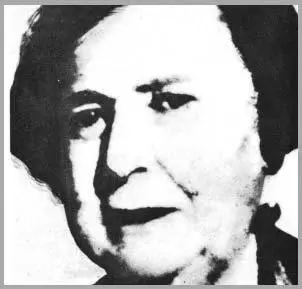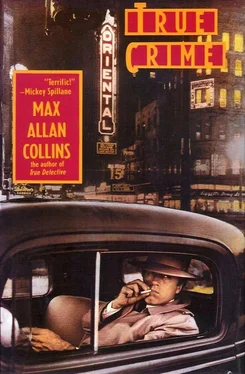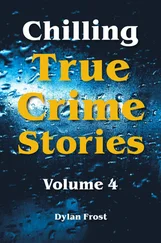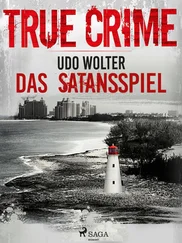“Kate Barker. Is she related to the Barker boys?”
Nitti nodded curtly. “She’s their ma.”
No mention of an old woman being connected to the Barker-Karpis gang had been in any of the newspaper write-ups.
I said, “Is she aware of her boys’ business?”
“Oh, yes.”
“Does she approve of it?”
“They can do no wrong in her eyes. She goes on the road with ’em sometimes, I’m told. But sometimes she tires of that kind of life and goes and lives in an apartment in the ‘big city.’ She’ll know where they are. Just tell her you want to connect up with her boys and Walker; she won’t care why, she’ll just do it. If she has any doubts about who you are, you have her check with one of my people, whose name I’m gonna give you.”
He tore the sheet with the address on it off the pad; handed it to me.
I glanced at the address.
3967 Pine Grove.
“Jesus — Frank, this is the apartment building where Jimmy Lawrence lived...”
“I know,” Nitti nodded. “I own it. Or one of my companies owns it.”
I was finding out more about Frank Nitti and his business than I wanted to; I could see me, dead in an alley.
“She’s living in Lawrence’s apartment, by the way,” Nitti said.
“Jesus,” I said, just staring at the white piece of paper, the address starting to blur.
“That’s only because the previous tenant vacated,” Nitti said, smiling like a priest. “She never met Lawrence.”
“She — she never met Lawrence?”
“No,” Nitti said. “And that’s to your benefit. Because that’s who you’re posing as.”
“Jimmy Lawrence?” I said.
“Pleased to meet you,” Nitti said, still smiling.

KATE BARKER
The next afternoon, Tuesday, I parked across from the big brick three-story on Pine Grove and just sat there for a while, collecting my thoughts.
In my billfold, where my Illinois state driver’s license should be, was an Illinois state driver’s license in the name of James L. Lawrence. I was wearing my white suit and a straw boater and gold-rim glasses with window glass in them. I felt faintly ridiculous. I probably was faintly ridiculous.
I was calling on the mother of the Barker boys.
Frank Nitti had spent another half hour with me, in his Bismarck suite yesterday, filling me in on Lawrence’s background.
He — or I — had been born in Canada, moved with his — or my (our?) — parents to New York as a boy; the parents were both dead — the mother in childbirth, the father in a factory accident — and I’d been raised by my uncle and aunt. My uncle had worked in the garment district in the West Thirties, and I’d ended up a union slugger there, for Lepke — as Lucky Luciano’s chief lieutenant Louis Buchalter was inexplicably called — and eventually became one of Lepke’s top aides in the protection racket. But I had a New York murder rap hanging over me, now, and had been shipped out by the New York boys to their friends in Chicago about a year ago, who put me to work, after some plastic surgery.
That much I’d learned yesterday afternoon. This morning around ten Campagna had dropped off the driver’s license and suggested I call a certain phone number, before noon. I did, and Nitti himself answered.
“I got just the ticket,” Nitti said.
We’d discussed the need, yesterday, for me to have a cover story, in addition to the Lawrence name and background — that is, a reason for getting in touch with Candy Walker and the Barkers apart from my real reason for being there, specifically, to spirit Walker’s moll away, which of course was nothing I dared advertise.
“There’s a guy named Doc Moran,” Nitti said. “Ever hear of him?”
“Yeah — isn’t he a pin artist?”
“Abortions ain’t all he does, Heller, but yeah, I suppose that’s his specialty. He’s got a practice over on Irving Park Boulevard, and he’s done good work for us over the years. Lots of union work.”
Underworld doctors like Moran came in handy, not just for providing abortions to Syndicate whores, but for dealing with the aftermath of union-busting activities, and any incidental gunplay Outfit troops might get involved in — the latter having declined since the rise of Frank Nitti, under whom less and less overt Syndicate violence was taking place.
I said, “Would I be wrong in supposing Moran’s clientele the last year or so has been primarily of the outlaw variety?”
“You’d be on the money, kid. Matter of fact, right as we speak, he’s in the Barker-Karpis camp... makin’ an extended house call.”
So now I was crossing the street and walking up to the relatively ritzy apartment house where the real Jimmy Lawrence had lived, not so long ago. I’d been his shadow, then; now I was his ghost.
In the entryway there were mailboxes with name cards; one of the ground-floor flats was occupied by the woman going under the name Alice Hunter. I knocked on her door.
A voice from behind the door, a melodious if quavering voice, feminine with a hint of a drawl, said, “Who is it, please?”
“Jimmy Lawrence,” I heard myself saying. “I’m a friend of your landlord’s.”
“Pleasure to meet you,” the door said, sincerely. “Why’d you drop by, Mr. Lawrence?”
“I need to contact Doc Moran. Can you help?”
“Why, I certainly would like to,” the door said. “Would you mind waitin’ out there a mite, while I make a telephone call?”
“Not at all, ma’am.”
I stood facing the door, straw hat in one hand.
A few minutes later the door cracked open and two bright, dark eyes peered out at me from behind gold-rim glasses, in the midst of a fleshy face highlighted by a witchlike pointed nose and chin, and a forehead where little ringlets dropped out of a skullcap mass of curly hair borrowed from Shirley Temple.
She was the oddest old lady I’d ever seen, and all I could see was her face, sideways, as she peeked around the door.
She smiled; her teeth were false, but the smile wasn’t. “You’re a right handsome young feller. Where’d you get that suit?”
“New York,” I said.
“That’s one place I never been.” She was still just peering around the door. “Would you mind holding open your coat?”
“Not at all,” I said, and did.
She smiled some more, as she noted my lack of hardware. Then the face momentarily disappeared as she opened the door wide and gestured sweepingly with a plump hand on the end of a plump, stubby arm.
I stepped inside. Just beyond the entryway where we were standing was a large living room, where a pastel-green mohair sofa with floral cushions shared the central space with several pastel-green lounge chairs, on a parquet floor somewhat covered by a fringed rug with a pastel-green-and-orange geometric design. Against one wall was a fireplace with a mirror with ivory-and-orange flowers superimposed on it. The apartment must’ve come furnished; this plump Ozark granny hadn’t decorated it. The place must’ve looked about the same when Jimmy Lawrence lived here.
There were touches of the current tenant, however. In front of the straighter backed of the two lounge chairs was a card table on which a jigsaw puzzle was perhaps two-thirds completed: a country church on a fall afternoon, orange and red leaves, blue sky with fluffy clouds — a bunch of the sky was yet to be filled in. In front of the sofa was a round glass-top coffee table with a fat scrapbook on it; clippings stuck out of it like clothes from a hastily shut suitcase. Against one wall in a standing cabinet was a combination radio and phonograph, the cabinet lid propped up and open; the radio was on and a hillbilly song was blaring out.
Читать дальше













